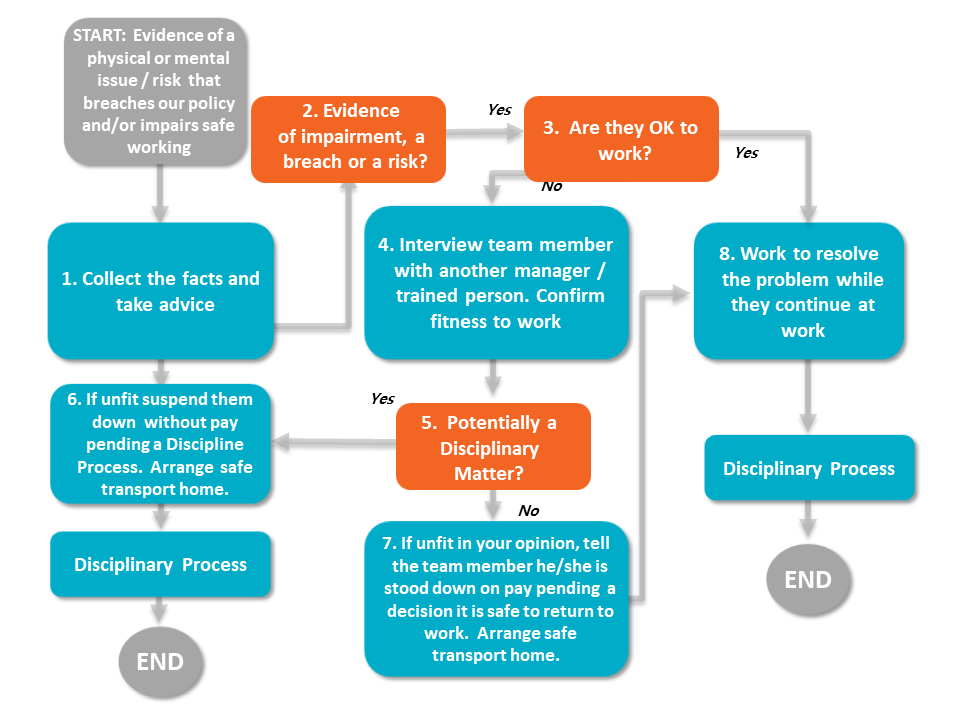How to deal with people who may be unfit for work

1. First, collect the facts including;
- Your own observations.
- Witnesses?
- CCTV?
- Documents/emails?
- If appropriate check with other employees and (discretely) with close work associates who may know something.
- Talk to Organisational Development and Capability.
- Read relevant policies (e.g. Drug and Alcohol)
2. Assess the evidence you have. Get a reliable (preferably medically trained) person to assist you and observe the team members behaviour. Signs could be:
- Impairment through drug or alcohol use; or
- Some physical or mental issue.
- Signs of stress.
- Very unusual (for that employee) behaviour.
- A trend or pattern of behaviour/performance that concerns you
3. Involve your manager and Organisational Development and Capability, and a medically trained person (if available) to help with this judgement. Test is whether in your opinion (and usually after talking to the person)
- There is a level of impairment through drug or alcohol use that exceeds our policy; or
- Reasonable grounds to believe that, if they keep working, there is risk to the team member, others or plant and equipment from their performance/behaviour as a result of the risk factor you’ve identified. If the answer to the above tests is ’No’ then take steps below to remove them from the workplace (at least until they are no longer a risk). If your conclusion is ‘Yes’ it may be that there is an issue which is not so severe that they need to be removed from the workplace but still requires your intervention because of its impact on the team member or their performance.
8. In these cases the team member is not 100% but is clearly OK to work. They may include physical or mental illness, stress or other personal problems which although debilitating don’t prevent the team member from working. As manager you have two responsibilities, firstly to ensure the team member gets the assistance and support they need and secondly to minimise the impact of the situation on the workplace. Typically you need to:
- Get an expert involved (or ensure the team member gets appropriate professional assistance).
- Talk with the team member about the personal and work impact you observe.
- Discuss options to address both personal and work impacts including treatment, paid or unpaid leave, changes in the workplace etc
- Consider referral to another Doctor or EAP (where appropriate).
- Get your manager and Organisational Development and Capability involved and monitor the situation closely yourself.